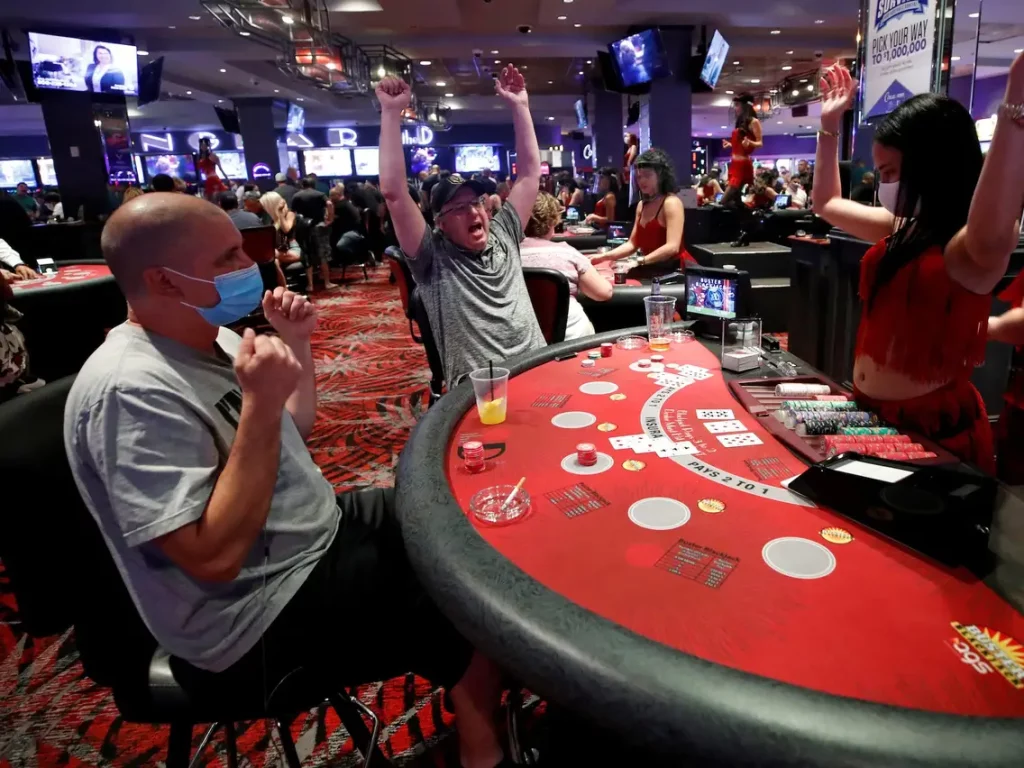Luck, a concept deeply ingrained in human culture, profoundly impacts how individuals approach various aspects of life. When it comes to online casino play, the psychology of luck plays a pivotal role in shaping the beliefs and behaviors of players. In this article, we delve into the intricate relationship between psychology and luck, exploring how one’s beliefs about luck influence decision-making, 토지노사이트 perceptions, and overall experiences within the digital realm of online casinos.
The Perceived Power of Luck
- Belief Systems Surrounding Luck:
- Observation: People hold diverse beliefs about luck, from cultural superstitions to personal convictions. Some believe luck is a force that influences outcomes, while others see it as a random and uncontrollable element.
- Impact: The belief system surrounding fate forms the foundation of an individual’s approach to online casino play, influencing risk tolerance and the interpretation of results.
- Cultural Influences on Luck Perception:
- Observation: Cultural backgrounds significantly impact how individuals perceive luck. Cultures may have specific symbols, rituals, or beliefs associated with luck that shape how people approach games of chance.
- Impact: Cultural influences contribute to a diverse tapestry of luck-related ideas, with some players relying on specific rituals or charms to invoke good fortune during online casino sessions.
Luck and Decision-Making in Online Casinos
- Impact on Betting Behavior:
- Influence: The belief in luck influences how players approach betting. Some may increase bets during perceived lucky streaks, while others may adjust their strategy or bet cautiously during periods they consider unlucky.
- Outcome: Luck-based decision-making can impact the overall risk profile of a player, influencing the size and frequency of bets based on their belief in fortunate or unfortunate consequences.
- The Gambler’s Fallacy:
- Concept: The gambler’s fallacy is a cognitive bias where individuals believe past events influence future outcomes, especially in games of chance. For example, if a player experiences a series of losses, they may think a win will occur soon.
- Impact: The gambler’s fallacy can lead to irrational decision-making, with players making bets based on the misconception that past results influence the probability of future outcomes.
- Positive and Negative Framing:
- Effect: Luck influences how players interpret works. Positive framing attributes win to luck and skill, enhancing the pleasure of success. Conversely, negative framing may attribute losses to bad luck, external factors, or personal shortcomings.
- Outcome: The structure of wins and losses can impact a player’s emotional response and resilience in the face of adversity or success, shaping their overall satisfaction with the gaming experience.
The Role of Randomness and Control
- Illusion of Control:
- Concept: The illusion of control is a psychological bias where individuals believe they have more influence over outcomes than they do. In online casino play, this may manifest as players perceiving a sense of control over random events.
- Impact: The illusion of control can lead to behaviors such as adjusting betting patterns or selecting specific games based on the belief that these actions influence luck.
- Random Number Generators (RNGs):
- Understanding: Online casinos use RNGs to ensure the randomness of game outcomes. Despite the inherent randomness, players may still seek patterns or trends in results, attempting to discern a sense of order or control.
- Impact: The perception of randomness and the desire for power over outcomes contribute to the intricate dance between luck beliefs and player behaviors within online casinos.
Strategies for Cultivating a Positive Luck Mindset
- Mindfulness and Awareness:
- Strategy: Encourage players to practice mindfulness and awareness during online casino sessions. Being present at the moment can help individuals detach from preconceived notions about luck and focus on enjoying the gaming experience.
- Outcome: Mindfulness promotes a healthier perspective, allowing players to appreciate the randomness of products without being overly influenced by beliefs in luck.
- Promoting Responsible Gaming Practices:
- Strategy: Online casinos can actively promote responsible gaming practices, emphasizing the importance of setting limits and adhering to them. Responsible gaming educates players about the nature of chance and the unpredictability of outcomes.
- Outcome: By fostering responsible gaming, casinos contribute to a positive and informed gaming environment, reducing the likelihood of irrational behaviors based on luck-related beliefs.
- Education on Random Number Generators:
- Strategy: Provide information and education about using RNGs in online casino games. Understanding the role of RNGs helps players recognize the inherent randomness of outcomes, dispelling illusions of control.
- Result: Informed players are more likely to approach online casino play with a realistic understanding of luck’s role, fostering a more enjoyable and rational gaming experience.
The Future of Luck Psychology in Online Casinos
- Integration of Skill and Chance:
- The future of online casino games may involve innovative designs that integrate elements of skill and chance. Games that balance player skill and luck could appeal to a broader audience, providing a more engaging and rewarding experience.
- Personalized Gaming Experiences:
- Advancements in technology may lead to customized gaming experiences that cater to individual luck-related beliefs. Customizable features, such as lucky symbols or personalized rituals within games, could enhance player satisfaction.
- Further Understanding of Cognitive Biases:
- Ongoing research into cognitive biases, including luck-related ones, will contribute to a deeper understanding of player behavior. Online casinos may use this knowledge to implement strategies that mitigate the impact of cognitive biases on decision-making.
Conclusion
The psychology of luck intertwines with the fabric of online casino play, shaping players’ beliefs, decisions, and overall experiences. As individuals navigate the digital realm of chance, their perceptions of luck play a significant role in influencing rational and irrational behaviors. Players and online casinos can contribute to a gaming environment that fosters enjoyment, mindfulness, and responsible play by understanding the intricate dance between psychology and fate.
Also Read: https://alpinecasino.co.uk/

